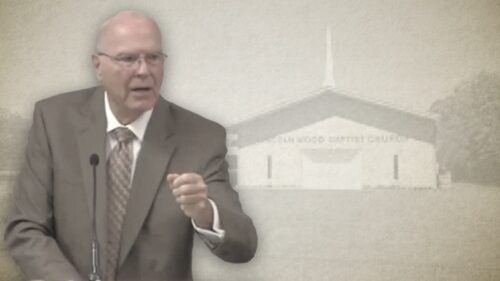-
AHB Worship Services, Jared Smith's Online Worship Services, Jared Smith's Sermons, Jared Smith's Studies In Genesis
Baptism And The Covenants
Those who practice infant baptism, within the tradition of Reformed Theology, do so upon the basis of their covenantal framework. However, there is more than one way to understand the arrangement of the biblical covenants. In this study, we examine several different arrangements, some of which support the biblical teaching of believers baptism.
-
AHB Worship Services, Jared Smith's Online Worship Services, Jared Smith's Sermons, Jared Smith's Studies In Genesis
The Origin Of False Religion And The Revelation Of True Religion
Whereas the second chapter of Genesis describes the garden of Eden before sin entered into the world, the third chapter marks out the events leading to sin entering the world. There are three parts to the chapter: (1-6) The entrance of sin into the world—of the angelic hosts and the human race; (7-13) The origin of false religion—unregenerate sinners are under the authority of the covenant of works, subject to its curse, as they are conceived in sin and shaped in iniquity. False religion is the attempt of sinners to make themselves right with God according to the terms of the Covenant of Works. Hiding one's sins, hiding from the presence of God and self-justification/righteousness are indicators of false religion. (14-24) The Revelation of True…
-
43 Bible Doctrine – The ‘Introduction’ To Gill’s Body Of Divinity
I would like to welcome you back to another study in Bible Doctrine. In our previous study, I aligned the chapters of John Gill’s ‘Body of Doctrinal and Practical Divinity’ with the Framework of Sovereign Grace. I will be using this diagram as the key, or map, to navigate us through the teachings of Gill. For this study, I wish to look at Gill’s Introduction to systematic theology. He begins his Introduction by stating the reason for publishing a ‘Body of Doctrinal and Practical Divinity’. It was after completing his commentary on the Old and New Testament Scriptures, he chose to enter upon an exposition of systematic theology, which he delivered week by week, in the course of his pastoral ministry at Carter Lane Chapel.…
-
The Introduction To Gill’s “Body Of Divinity”
In his Introduction to the "Body of Doctrinal and Practical Divinity", John Gill begins with the reason for tackling the subject, followed by three main headings: (1) The Importance Of Systematic Theology; (2) The Meaning Of Systematic Theology; (3) The History Of Systematic Theology.
-
AHB Worship Services, Jared Smith's Online Worship Services, Jared Smith's Sermons, Jared Smith's Studies In Genesis
The Garden Of Eden And Covenant Relationships
The second chapter of Genesis is the only passage in the Bible which provides a detailed description of the sixth day of creation. The importance of the record cannot be overestimated, as it outlines the state and condition of the world before sin entered into the human race. There are four parts to the chapter: (1) A review of chapter 1, verses 4-7; (2) A description of the garden of Eden, verses 8-14; (3) The establishment of the covenant of works, verses 15-17; (4) The
-
42 Bible Doctrine – Gill’s ‘Body Of Divinity’ Aligned With The Framework Of Sovereign Grace
I would like to welcome you back to another study in Bible Doctrine. In our previous studies, I have presented to you the table of contents belonging to John Gill’s Body of Divinity. He has divided his teachings into two parts. The first part is a doctrinal body of theology, composed of seven books, or branches, containing one-hundred-and-seven chapters. The second part is a practical body, composed of four branches, with one appendix and containing forty-nine chapters. We therefore have a total of eleven branches, one appendix and one-hundred-and-fifty-six chapters.





